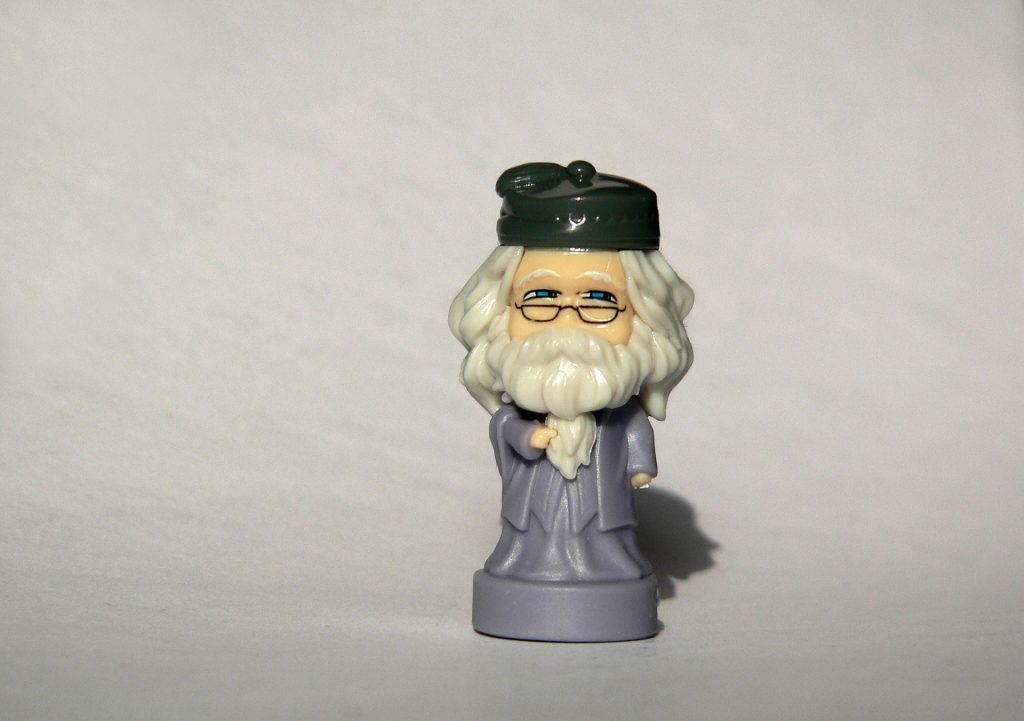
I have already dealt with the topic of “decisions” once before, in September 2020. Two reasons motivate me to take up this topic again: Firstly, the new book by Daniel Kahnemann et al., which deals with this very topic and secondly, a quote from Joanne K. Rowling, who may be a good writer but apparently has not read anything by Kahnemann and – what is much worse – not even our blog.
“It is our choices, Harry, that show what we truly are, far more than our abilities,“ she has Dumbledore say. Underlying this statement is an assumption that could not be more wrong: that our choices reflect our true character.
The decision to file her tax records in a blue folder or a yellow one is almost certainly not what Ms Rowling meant. It is legitimate to assume that she was rather referring to so-called “discretionary judgments”. These come into play when there is a degree of uncertainty and we consider the possibility that people may arrive at different decisions. And it also resonates with her quote that decisions are capable of showing reality and are thus capable of exposing deception and eyewash.
People with a “good” character would thus have to make similarly “good” decisions and people with a “bad” character “bad” decisions.
Daniel Kahnemann comes to a different conclusion in his latest book “Noise – A Flaw in Human Judgment”. He does not address the connection between a person’s character and their decisions. He would certainly agree that there are a lot of lousy assholes running around in this world who make a lot of awful decisions, but he never draws the reverse conclusion. Decisions can be an expression of a rotten character, but they don’t have to. And precisely because he knows and shows how much our decisions are influenced by factors whose existence we do not even suspect, he refrains from moralising judgement.
People come to different decisions when faced with the same facts! Kahnemann reports on dozens of studies in which the judgements of judges (sentences) in similar cases were compared. The results are shocking. The sentences ranged between life imprisonment and fines for the same offence, with similar accompanying circumstances (previous convictions, skin colour, family environment, etc.). You might be tempted to assume that among the judges were misanthropes and altruists who judged according to their tendencies. This is quite correct, but then again it is not, because even in relation to a particular judge, the judgments were by no means always or predominantly strict or indulgent. This is exactly what Kahnemann calls “noise”: a more or less arbitrary scattering (in distinction to “bias“, a systematic deviation – strict vs. lenient).
But where does such scattering come from? The results confirm Eagleman’s thoughts I mentioned in September on adapting the existing legal system. Here are a few examples. If the weather is fine, judgments are less harsh. If the home team lost on the weekend, the sentences are harsher. If a judge has already made two harsh judgments on the same day, the third sentence is less harsh and vice versa.
But even doctors do not come to the same decision for the same patient. Diagnosis or recommended therapy can, as we have all experienced ourselves, deviate considerably. Despite completely identical information.
Is it possible to draw conclusions about the “true self” of doctors and judges from their decisions? Hardly.
Original text: RGE
English translation: BCO
Bildquellen
- Dumbledore: Maurygraf / Pixabay

